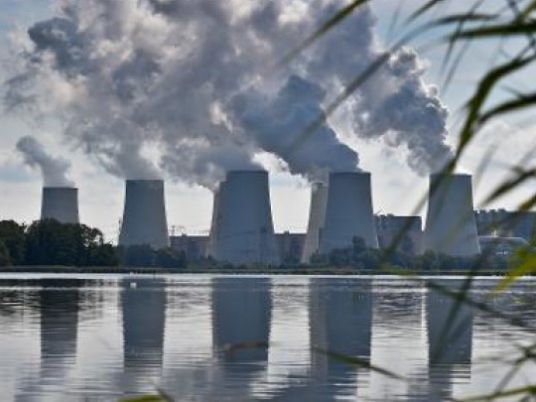
The UN weather agency has announced that carbon dioxide (CO2) levels are likely to reach unprecedented levels next year, leading to what it describes as a "permanent reality" for the planet, according to a recent article by the Guardian.
The environment and the planet's future have been at the forefront of people's thoughts ahead of the Paris climate summit, which will take place later this month and bring together nations from around the world to tackle the climate change issue.
The World Meteorological Organization (WMO) states that concentrations of CO2 have risen by 43 percent since the pre-industrial period. The organization's Secretary General Michel Jarraud has warned that in order to mitigate the impact of CO2 emissions nations must take immediate action.
"We can’t see CO2," Jarraud told the Guardian. "It is an invisible threat, but a very real one. It means hotter global temperatures, more extreme weather events like heatwaves and floods, melting ice, rising sea levels and increased acidity of the oceans. This is happening now and we are moving into uncharted territory at a frightening speed."
Understanding greenhouse gases
CO2 is one of several greenhouse gases found in the atmosphere. Greenhouse gases are a grouping of gaseous compounds that trap heat in the atmosphere, potentially leading to global warming. They are primarily made up of naturally occurring gases, in the form of carbon dioxide, water vapor, methane and nitrous oxide. Man-made gases or fluorinated gases, such as chlorofluorocarbons, are also considered greenhouse gases. Chlorofluorocarbons can be found in refrigeration and air-condition systems, aerosol cans and fire extinguishers, among others.
The WMO's 11th edition of the Greenhouse Bulletin, which was published on November 9, indicates that the most important greenhouse gases today are CO2 and water vapor. Although water vapor is always in the earth's atmosphere, changes in CO2 levels have a significant impact on how much water vapor is found in the atmosphere. As the earth's temperature increases, so too does the amount of water vapor in the atmosphere, thereby causing more heat to be trapped in the atmosphere, effectively creating a vicious cycle that will be difficult to counteract.
New global temperatures
Since water vapor reacts to changes in CO2 emissions, and several industrialized nations produce enough emissions to impact the whole planet (through the use of fossil fuels for energy, among other things), it is no big surprise that CO2 emissions are considered the most important of the greenhouse gases. Jarraud told the Guardian that in order for the planet to have any chance of keeping CO2 levels manageable, emissions from power plants, factories and cars need to be cut, and cut now.
The upcoming Paris climate summit will attempt to find solutions for keeping global temperatures no higher than 2C since the pre-industrial period, a temperature increase accepted and committed to by nations globally. Scientists warn, however, that if action is not taken immediately, global temperatures may increase by up to 5C.
A 2013 article in the Guardian quotes climate scientist and former head of NASA's Goddard Institute for Space Studies Professor James Hansen as explaining the implications of a 4 to 6 degrees rise in global temperatures in a paper published in July of that year.
“Four degrees of warming would be enough to melt all the ice… you would have a tremendously chaotic situation as you moved away from our current climate towards another one. That’s a different planet. You wouldn’t recognize it… We are on the verge of creating climate chaos if we don’t begin to reduce emissions rapidly.”
CO2 emissions by country
Data from the World Bank's CO2 emissions in 2011 indicated that the worst global culprits in CO2 emissions come from some of the world's largest industrialized nations. China took the ill coveted spot of first place with over 9 million CO2 emissions in kilotons, followed by the United States with over 5 million kt, India with over 2 million kt, Russia will nearly 2 million kt and Japan at a little over 1 million kt of CO2. Egypt registered at 220,790 CO2 emissions (kt).
The Paris climate summit will take place from November 30 to December 11 and will be attended by over 190 countries seeking to find ways in which to reduce greenhouse gas emissions.




